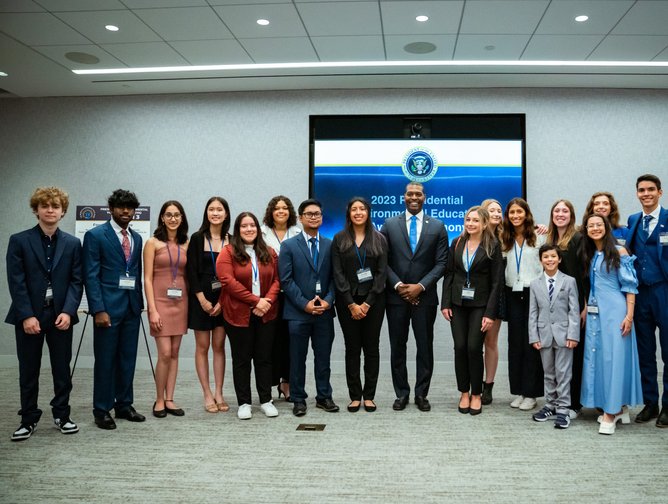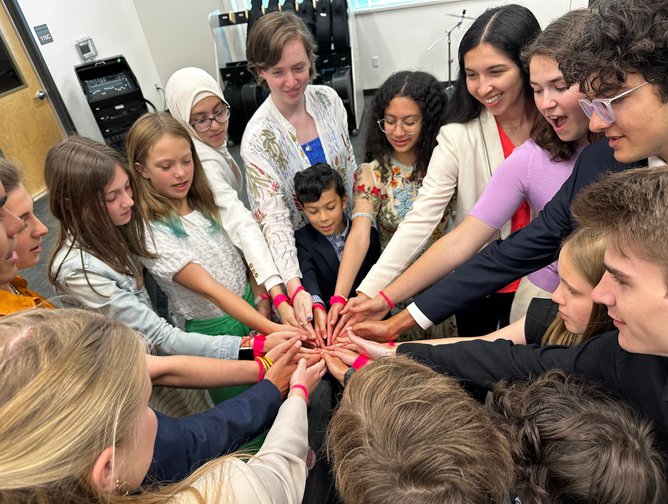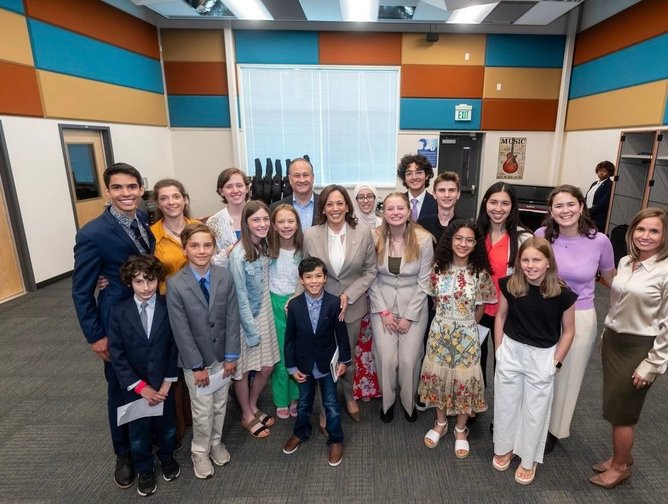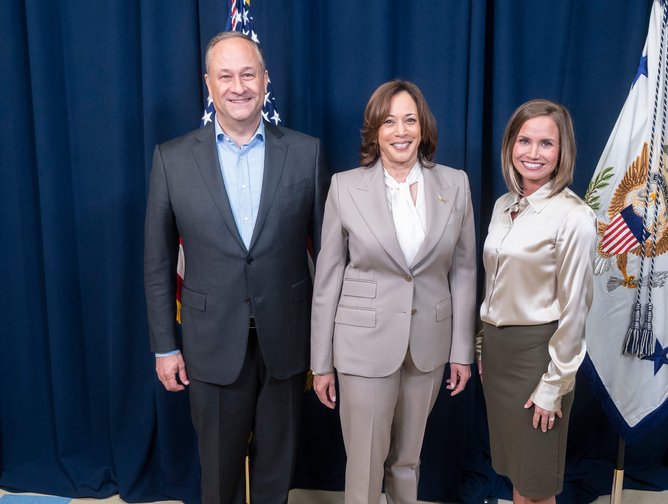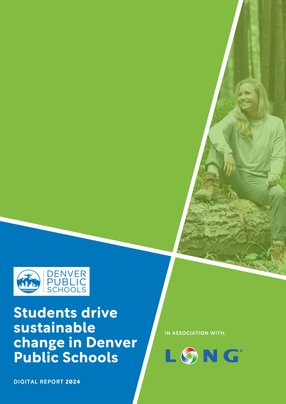Students Drive Sustainable Change in Denver Public Schools
The climate crisis isn’t just a concern for adults. It becomes apparent as we learn more about the students of Denver Public Schools (DPS) and the impacts they can facilitate at such an early stage of their lives. While DPS aims to influence all of its students, the organisation cannot take credit for the sheer determination of its young people to build a better world. With the foundational sentiments in place, students of the state now gain unwavering support to carry their sustainability initiatives into the corporate world.
DPS’ story is about changing the narrative from one of climate crisis to bold action, innovation, and accountability—giving students ‘a seat at the table’ to showcase their ability to achieve even more in the realm of sustainability. “We must move beyond feeling scared of the weight of what we must do to focus simply and narrowly on doing”, says LeeAnn Kittle, Executive Director of Sustainability.
This is the role of DPS, the district’s 200-strong network of institutions delivering the necessary knowledge, skills, and tools for students to pursue their desired careers and change the world in their own ways. With this comes, at present, a workforce of 15,000 staff to support 90,000 students who take the sustainability agenda very seriously.
How exactly can an organisation this large spread the right messages and build a future worthy of those they teach? It begins with a unified approach that incorporates equity into all of its functions.
In 2023, President Biden passed regulation to provide free lunches to all students, which aligns with DPS’ commitment to equity for all students and staff. Further promoting the health and wellbeing of young people, fresh produce is provided to classrooms, and financial literacy established among families of the students to ensure that proper care is carried beyond the confines of school.
“What sets us apart from other school districts is that we prioritise equity and sustainability. We recognize there are marginalised members of our community and disproportionately impacted families when it comes to the effects of climate change, and we are working to dismantle these disparities.,” says Kittle
“We really focus on those two things to make sure that our students can thrive in their educational journey.”
Climate policy is generated by the students of DPS
As early as 2009, DPS has held sustainability in high regard with a dedicated member of staff on the case to drive the importance of environmental and social aspects among its students. Not only is it about educating young people on the necessary steps to take, but hearing their urgency in such a way that makes them feel seen, heard and supported.
Since joining the organisation as its Director of Sustainability in April 2020, Kittle has witnessed a great level of change across its district-wide footprint, as a result of its student voice, not to mention a global push in the direction of emissions reduction and more thoughtful commercial and public growth.
“Students came forward,” she says. “We had 30 students from eight different schools together in a Zoom meeting during the pandemic. They didn’t know each other, but they pushed and urged our board of education to pass a climate action policy.”
This shows a testament to the culture fostered across the district. Over the course of two years or so, these students tenaciously influenced the organisation to take a measurable stance on climate change, which took persistence but also accelerated a number of skills that those students would carry into the workplace. Even before these students make it to the corporate environment, they have already influenced city council members, principals, community leaders, and business leaders to receive 4,000 signatures in a petition to establish a climate action policy.
“Everything from then on shifted dramatically in terms of the rate at which we're implementing our sustainability initiatives,” says Kittle. “We put together a climate action plan and then also did a financial impact assessment to truly understand what it would take to decarbonize our built environment.”
The result of sustainability stewardship among DPS students
The city and county of Denver are supportive of DPS’ initiatives that develop both the organisation and its students’ livelihoods. Through various funding avenues including grant funding, projects have been implemented to drive down the impact of its premises—include solar canopies, shade structures and rooftop installations—and reduces the impact of its communities through the creation of new gardens, the adoption of electric buses, district-wide LED retrofits, all supported by real-time data access through eGauges.
“Community solar really touches on the piece that the students asked us to focus on with environmental justice, which is just the beginning for us,” says Kittle. “We recognise that there are many aspects to environmental justice that we need to focus on, but I think with our strong equity background, we have an opportunity to really focus on that in a way that’s conducive to what students are asking of us.”
One of the key actions for DPS was to focus on capital improvements to support their energy management practices., . They did this through an energy performance contract facilitated by the Colorado Energy Office allowing DPS to pay back upgraded equipment through the guaranteed energy cost savings realised, which reduces the need for upfront capital.
The adoption of renewable energy—46 solar arrays in total—feeds into DPS’ climate action plan y to offset electrification of their buildings.. In the court of public opinion, alternative transportation is of high priority as well. The adoption of electric vehicles (EVs) at the district has been made possible by federal, state and local funding bringing more than 20 electric buses to DPS’ fleet in the coming years.
"We have solar shade structures for our outdoor classrooms to really educate the public about solar because typically solar goes on a rooftop and you don't have any experience with it. You don't see it or think about it. Out of sight, out of mind,” Kittle explains.
“We wanted to really bring it down to a level people can see it working and we did this with the city and county of Denver as our partner..”
Setting up students for workplace achievements
Not only is it pivotal in the response that DPS has to the climate challenge, but advocacy seems to serve its students well later in their lives. Kittle provides an anecdote of a previous student in its Climate Action Leaders programme who received great recognition later on as a result of stewardship at school.
“I just got an email this morning from one of the DPS students for Climate Action Leaders who just graduated earlier this year, and he's been selected to be on a national Environmental Protection Agency, Environmental Youth Advisory Council,” says Kittle as she announces at great triumph for one of DPS’ own “That was only 16 students, or 16 youth, across the nation and thousands of applicants, so I think their ability to have a voice at a school district level has given them hope and understanding that they can share at a national level, and are doing so.”
“Our DPS Students for Climate Action also won the Presidential Environmental Youth Award, and this Summer went to Washington DC to accept it. I think they recognise that they can have a voice for a much larger group outside of DPS.”
Furthering this the students boldly address climate change with the Vice President of the United States who previously visited DPS schools to undergo an intimate conversation to highlight what DPS is doing with climate action and give the students an opportunity to voice their concerns about their futures.Not only did this show willingness from the students to advocate the subject among their country’s leadership, but also gave them a chance to put their final points across in the wake of DPS’s Climate Action Plan.
For anyone still wondering how students have come on board with such incredible activities to influence their own futures, it’s worth looking at the trends among young people but also the approach that DPS takes. While Kittle claims the organisation isn’t actively influencing its students to make these changes, she believes that its approach to education—i.e. simply focusing on teaching rather than preaching—is what gives them the fuel they need to understand how sustainability impacts them. “Often the students are teaching us about the climate, not the other way around. They are globally aware.”
“For us at DPS, we really do look at a triple bottom line, but not in the way that maybe the private sector has looked at it with people, planet and profit. We look at it as economic prosperity, social development, and environmental protection,” she says.
“I can't really think of anyone that I've spoken to, no matter where they're at on the topic, that can't relate in some way to how their day-to-day life fits within one of those three focus areas. I actually haven't encountered too many students that are not on board. I think that has a lot to do with our region being on the forefront when it comes to sustainability, our city, our state, as well as our district.
“I don’t think any of the students I’ve worked with thus far are specifically into energy or water consumption, waste or wildlife conservation. They have a holistic approach to climate action. They get that it’s a system.”
This exploratory stage of education allows students to find their footing on the career ladder with sustainability information in their arsenal—really to showcase to the employer and use their knowledge in any role they wish to take on.
Climate advocacy will continue with partner support
Of course, like any great strategy, the key is to continue progressing—reducing carbon footprint and ensuring that solutions meet long-term needs.
Working in partnership with Long Building Technologies, DPS piloted a Fault Detection Diagnostics programme, which automates defects within its entire built environment and does the job of an engineer from a centralised digital system. Automating fault detection allows for greater comfort within the school as it reduces the time to find a fault, making it much simpler to rectify.
Students being the driving force of change for the organisation, DPS continues to assess their sentiments and take feedback on climate and social projects to leverage their creativity, passion, and drive for a better future.
Make sure you check out the latest edition of Energy Digital Magazine and also sign up to our global conference series - Sustainability LIVE 2024
**************
Energy Digital is a BizClik brand
